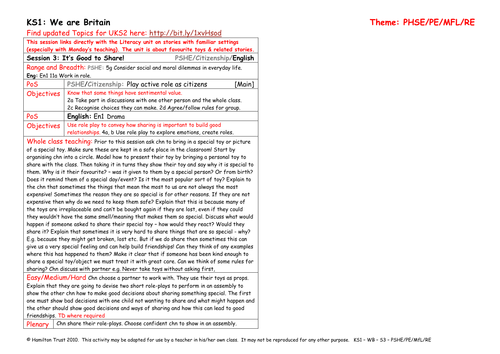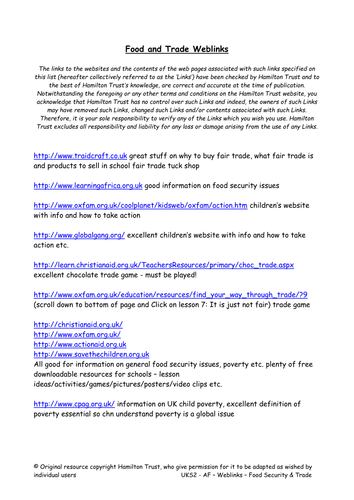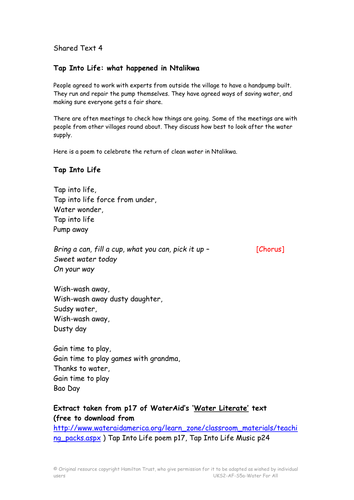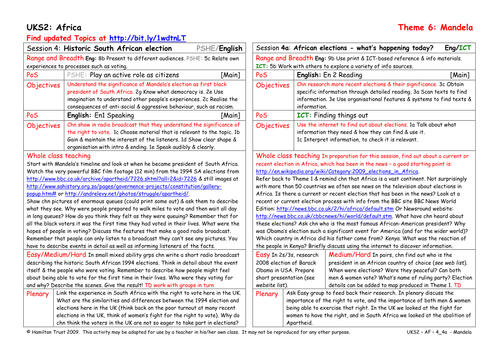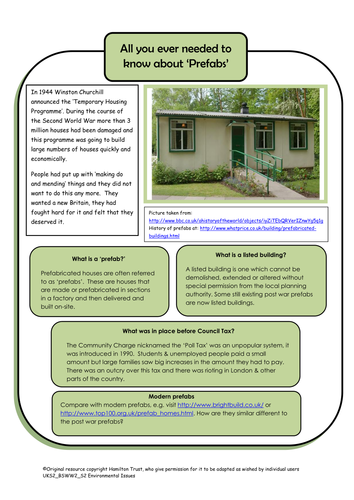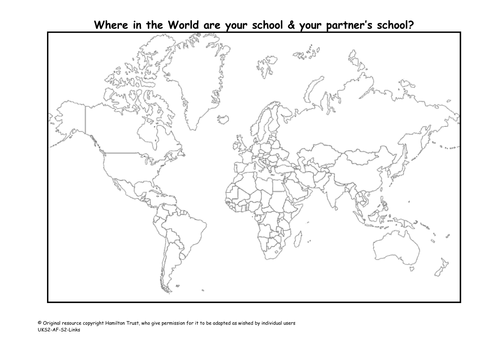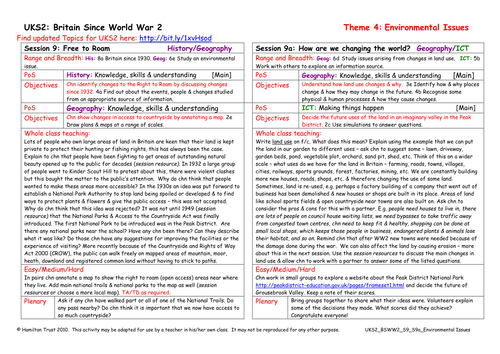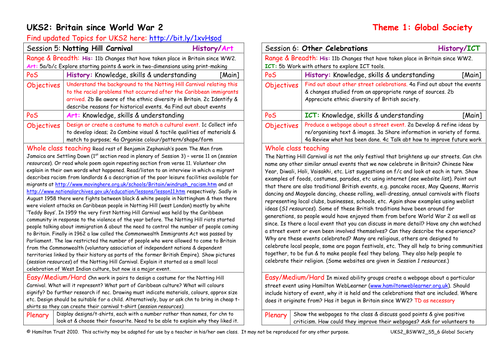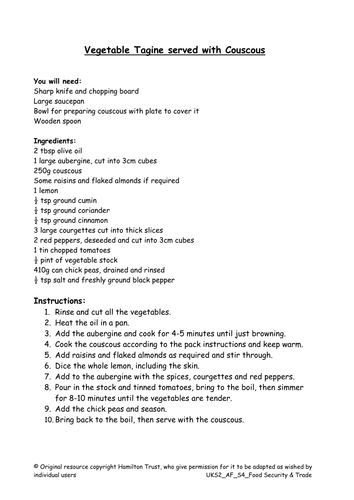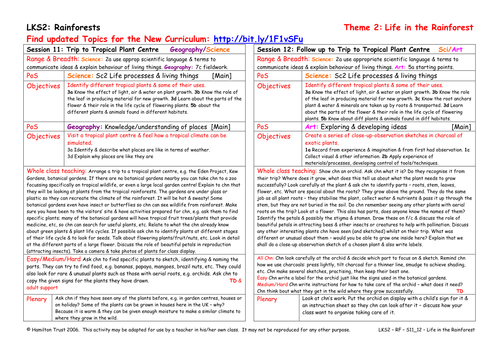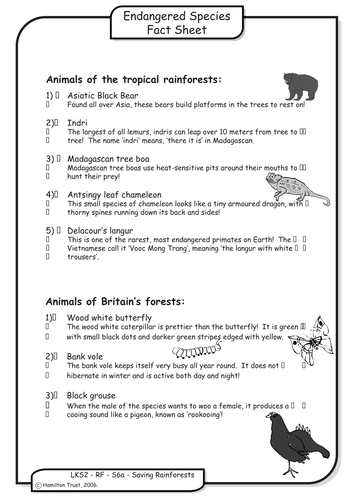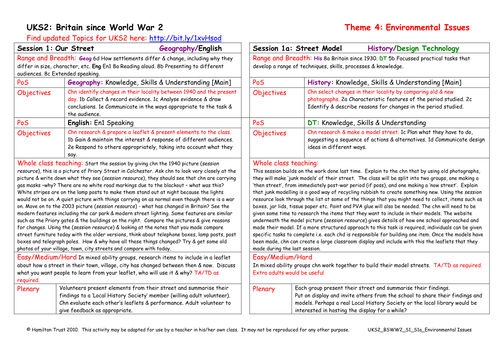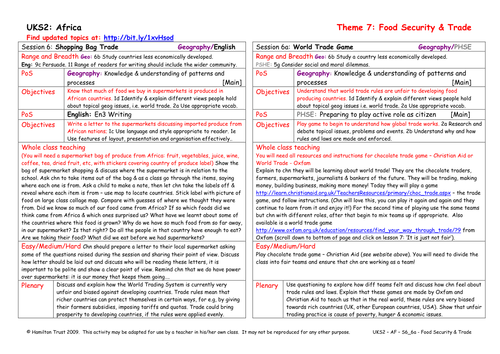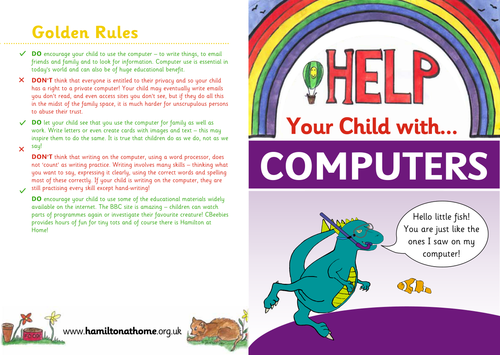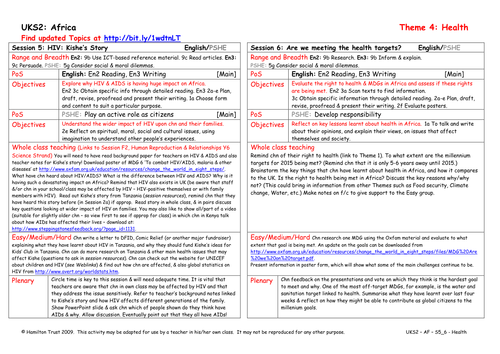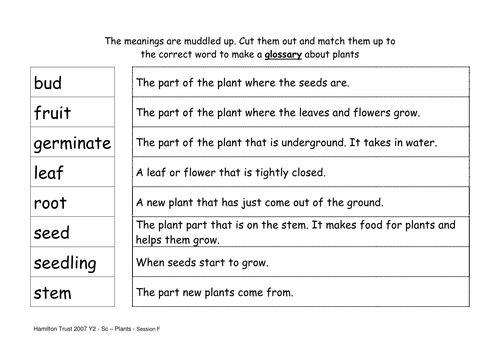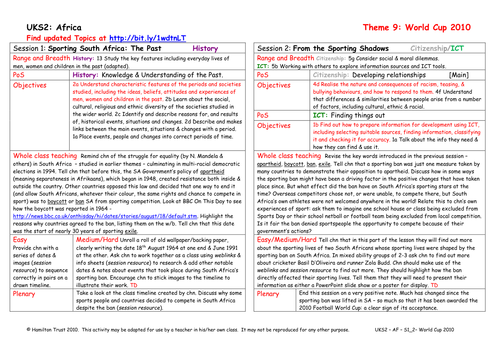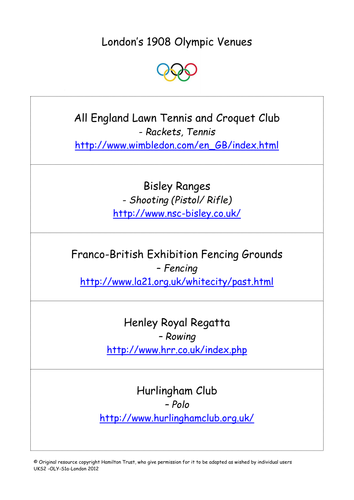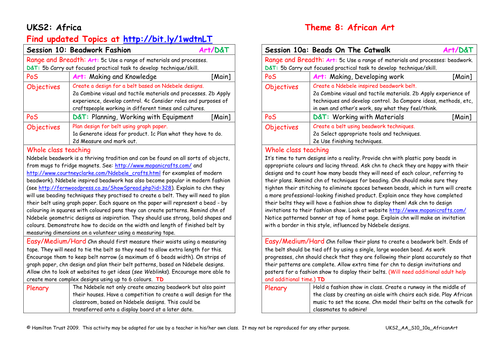
397Uploads
10041k+Views
11644k+Downloads
All resources

Tumble Driers
Children find out how a tumble drier works, list the advantages and disadvantages of tumble driers and then have a debate about whether they are a good or bad thing!

Food Crops and Fufu
Children are introduced to the idea that there are some staple foods which exist in all cultures. These are usually carbohydrates, and in many African countries they consist of foods made from Maize or corn. Children make fufu.

Tap Into Life
Time to celebrate water! Children use the Oxfam online water photo-montage and Water Literate’s ‘Tap Into Life’ poem set to their provided music, to both prepare a performance and write their own celebratory poems with percussive backgrounds.
Suitable for years 5 and 6.

African Elections
Africa is a large continent with over 50 countries – usually there is an election going on somewhere! Children research a current/recent election in Africa and/or the election of Barack Obama as President of USA. Discuss the significance of Obama’s election.
Suitable for years 5 and 6.

Prefabs
Children understand that millions of houses were destroyed during WW2 and they needed to be replaced. Houses were designed that were pre-fabricated. They were quick to build; thousands were put up in the 1940s/1950s. Children choose key info needed to sell a prefab.

Where in the World?
Discover where in Africa your link school is (or use a child described in a book as your link). Imagine you are going to visit and plan the journey you would make. Draw the route on maps or create a journey timeline including distances, mode of travel, etc.
Suitable for years 5 and 6.

Free To Roam
In the past landowner’s have not wanted people to have access to their land. Children look at how the introduction of National Parks and Access to the Countryside Act 1949 has changed this. Children annotate a map showing ‘right to roam’ areas, trails, etc.

Other Celebrations
Look at other celebrations that take place here now because of the different immigrants who have come to Britain. Children research one of these celebrations in groups and using Hamilton WebLearner children produce a web page to describe and explain it.

Terrific Tagine
Children return to the notion of a staple food. They look at uncooked couscous grain and discuss how this grain is a staple of much of North Africa and Middle East. Then children cook vegetable Tagine and enjoy eating it!

Trip to Tropical Plant Centre
In this session children get up close and personal with tropical plants on a visit to a botanical garden, zoo or even a large garden centre. Children find out more about conditions for growth and the life cycles of different plants.
Suitable for years 3 and 4.

Endangered Animals 2
In this session children are shown how to use search engines to search for images, and be selective about those that they choose. Children then continue to collect key word notes about their animal or plant.

Street Model
Building on previous session, children make a model of a street near the school (or from imagination). Class is split in two – one group make a ‘then’ model and one a ‘now’ model – using junk modelling techniques. Display along with leaflets previously made.

Shopping Bag Trade
Children learn how much of the food we buy in supermarkets is produced in African countries. They discuss this in the light of their knowledge of fair trade and write a letter to the local supermarket to discuss the issues.

Help Your Child With Computers
An advice leaflet for parents with information on computer safety and the benefits of computers.

Are we meeting the health targets?
Reflect back on ‘Right to health and MDGs. Investigate how far children think their rights and the MDGs related to health are being met. Present a MDG in an interesting way.
Suitable for years 5 and 6.

Sporting South Africa: The Past
On 18th August 1964 South Africa’s invitation to the Olympic Games was withdrawn. What followed was nearly thirty years in the sporting wilderness. In this session children study key dates and events which are added to a timeline.

Collate findings
Finish the investigation started in Session B. Use the results to try and answer the questions about what plants need.
Match vocabulary to meanings to make a glossary. Assess what has been learnt.
Suitable for Y2 pupils.

From the Sporting Shadows
Since the ban was lifted South Africa has become one of the World’s top sporting nations and has even been awarded the World Cup in 2010. But what impact did the ban have on the lives of South Africa’s sporting stars of the past?

London's Olympic Legacy
The Olympics is now the largest sporting event on Earth, but that was not always the case. Children compare today with its early London incarnations and investigate what happened to the facilities after the torch was extinguished!

Beads On The Catwalk
Hold a fashion show in class! Children create their own beadwork belts based on Ndebele designs and using traditional methods. Sensational!

